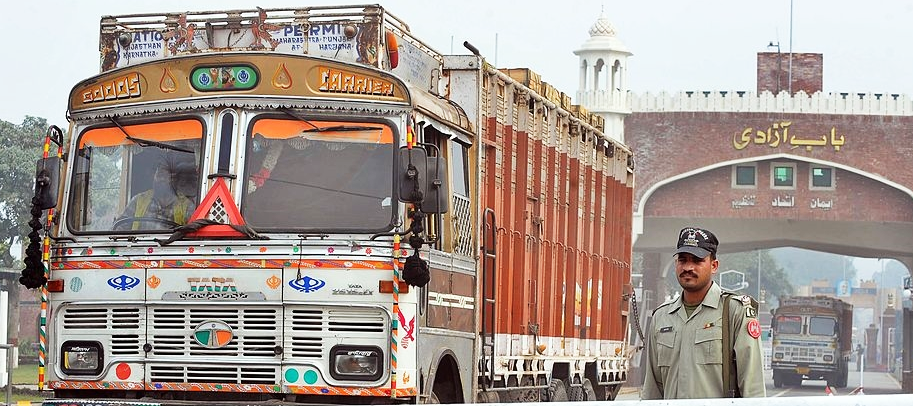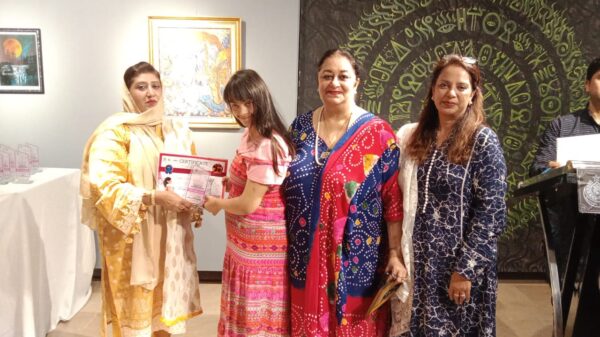ISLAMABAD: India abrogated the Article 370 of the constitution in August 2019 which changed the status of Occupied Kashmir setting aside the resolution of the United Nations about the Held Valley and a long-standing territorial dispute with Pakistan and China. This unexpected development has triggered tension between two arch-rival nuclear powers. In the backdrop of this situation, India has emerged as a major loser in bilateral trade with Pakistan in financial year 2019-20, a year after Modi’s government repealed Article 370 of the constitution.
On 5th of August 2019, Indian government, led by Prime Minister Narendra Modi, repealed the Article 370 of the constitution, changing Occupied Kashmir’s independent status to an integral part of India. Soon after this development, Pakistan also retaliated by suspending two-way trade with India and downgrading diplomatic ties. Nevertheless, in the first week of Sept 2019 (a month later), both the countries decided to resume trade of medicines only to meet emergency needs of their people. Consequently, as a result of this very limited two-way trade between the two neighboring countries soon after abrogation of Article 370 pertaining to Occupied Kashmir, Pak-India mutual trade started experiencing a serious setback.
For example, in FY-19 (July 2018 to June 2019), Pakistan’s imports from India amounted to $1.60 billion while exports of Pakistan to the neighboring country remained at $374 million. However, in Financial Year-2020 (July 2019 to June 2020), Pakistan’s imports from India fell to the history’s lowest level ($374 million), showing a massive decline of $1.22 billion in comparison with this trade volume in FY-19. During this period, exports of Pakistan to India also dropped to the bottom, $28 million in FY-20, from $312 million in FY-19.
Importantly, when India abrogated Article 370 in the Occupied Kashmir in August 2019, Pakistani top leadership – Prime Minister Imran Khan, Army Chief General Qamar Javed Bajwa and other senior officials held an urgent meeting in Islamabad and announced immediate closure of two-way trade and also downgraded diplomatic ties by asking Indian envoy to leave Pakistan. Since then the Indian government is keen to resume a full-fledged trade with Pakistan, but Pakistani leaders are linking it with revival of original status of the Held Valley.
Economists believe that Pakistan and India mostly trade seasonal items such as vegetables and fruits which comprise 75-80 percent of their total trade each year. Major tilt of two countries’ mutual trade is largely in favour of India which is evident from Pakistan’s $1.6 billion imports from the neighboring country in FY19, whereas, Pakistan generated only $374 million through exports, showing a deficit of $1.22 billion in 20018-19. In Pakistani currency, imports from India have declined by more or less 200 billion rupees in just 2019-20, when compared with the size of two-nation’s mutual trade in 2018-19. Pakistan and India exchange goods through Wahga Border in bulk quantity.
A few years ago, the World Bank conducted a study which revealed that Pakistan and India can boost their bilateral trade to $10 billion per annum. However, whenever India takes any aggressive decision against Pakistan, the latter suspends mutual trade. For example, soon after Mumbai attacks in 2002, India blamed Pakistan for the attacks, deployed army on border with Pakistan, and created tension by indulging in gory border skirmishes. However, Pakistan not only denied its involvement in Mumbai attacks, but faced this aggressive situation on border boldly. In 2002, General Pervez Musharraf was the President and Army Chief of Pakistan. His government immediately suspended two-way trade with India in the wake of aggressive Indian gestures and also deployed troops on border.
Nonetheless, a year after suspension of trade, India withdrew its troops from border when a large number of Indian farmers and businessmen put pressure on their government because they were suffering massive losses after suspension of trade with Pakistan. Meanwhile, with the intervention of the United States and some other countries, India and Pakistan gradually normalized their diplomatic and bilateral trade ties and also implemented some new initiatives that boosted constantly their mutual trade around $2.6 billion in 2013-14. At that time, imports from India mounted to $1.75 billion while Pakistan’s exports to bordering country surged close to half a billion dollars.
Before suspension of trade with India, Pakistan’s main traditional imports were onion, garlic, potato, tomato, ginger, multiple spices, pulses, and different fruit items especially bananas and coconut and medicines. Similarly, Pakistan’s exports to India included vegetables, fruits, medicines, textile products, pink salt, and naphtha, etc.
For example, in 2011-12, imports from India were estimated at US$1.253 billion which increased to 1.677 billion US dollars in 2012-13 and further surged to 1.757 billion US dollars in 2013-14. However, soon after the formation of Modi-led BJP government in India, the exports of India to Pakistan begun the downward journey and fell to US$1.423 billion in 2014-15.
Interestingly, the foreign trade data of State Bank of Pakistan (SBP) has revealed that Pakistan has suffered a huge deficit of Rs 364 billion in bilateral trade with India in three years, 2011-12 to 2013-14. In these three years Pakistan had imported goods worth 4.687 billion US dollars, while exports to India remained around 1.084 billion US dollars. Thus, Pakistan had sustained 3.603 billion US dollars deficit in trade with arch-rival India in three years.
Another issue was that Pakistan’s exports to India have fluctuated in narrow range in three years (during 2011-12 to 2013-14) and remained between 333 million dollars to 423 million dollars a year. In sharp contrast to this, Pakistan’s annual imports from India have surged close to almost 2 billion US dollars. Another notable aspect is that Pakistan is feeding Indian farmers by importing vegetables and fruits worth about one billion dollars a year.
According to analysts, instead of relying on India in important vegetables and fruit, Pakistan should facilitate its own farmers to grow more edible items to reduce import bill and to enhance their income.
Interesting to note is that when military dictator is ruling in Pakistan, India remains quite, calm, and talks of bilateral friendship, cooperation. Nonetheless, when a democratic government is established in Pakistan, Indians start hurling threats, use derogatory language, and their military increases border skirmishes and shelling. Abrogation of Article 370, Pulwama attack drama, fake Indian surgical strikes in Pakistani territory, and frequent violations on the Line of Control (LoC) from the Indian side are some of the recent examples that occurred after the formation of elected government, led by Pakistan Tehrik-e-Insaf (PTI). PTI chairman Imran Khan has been elected Prime Minister of Pakistan since August 2018.
Instead of promoting a friendly environment, mutual cooperation and promoting business with elected government in Pakistan, India starts pursuing a hegemonic designs and uses various tactics to put political and diplomatic pressure on Pakistan. Consequently, this aggressive approach of India sabotages peaceful diplomatic and trade ties with Pakistan.










